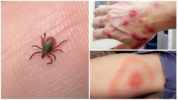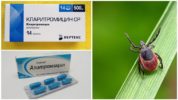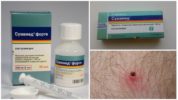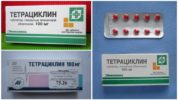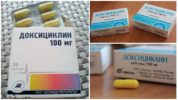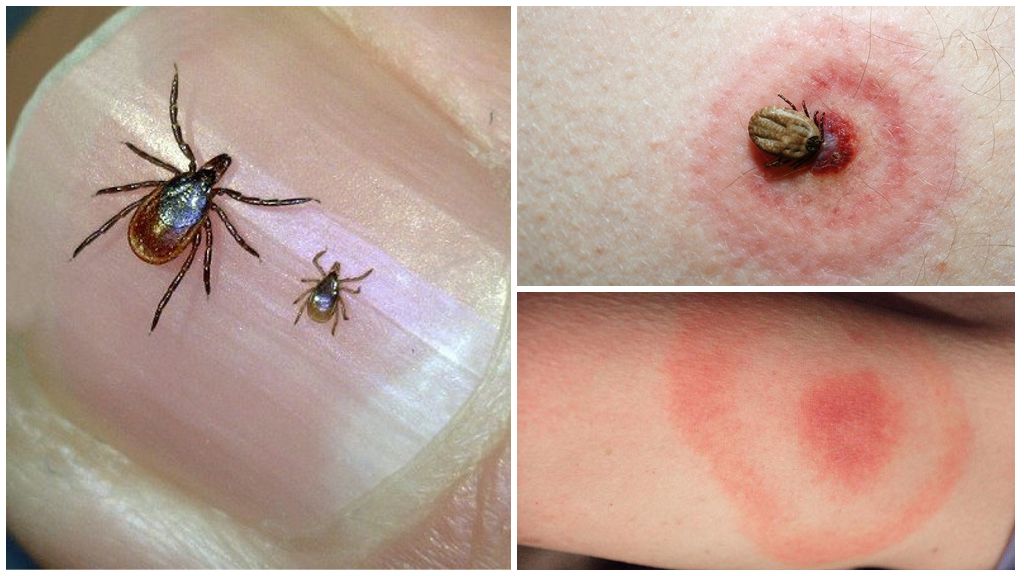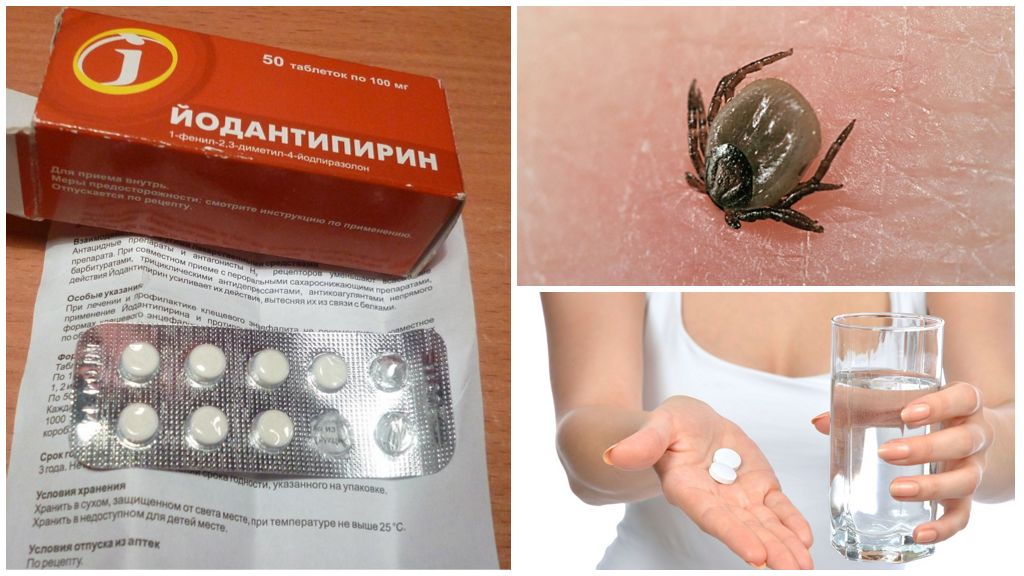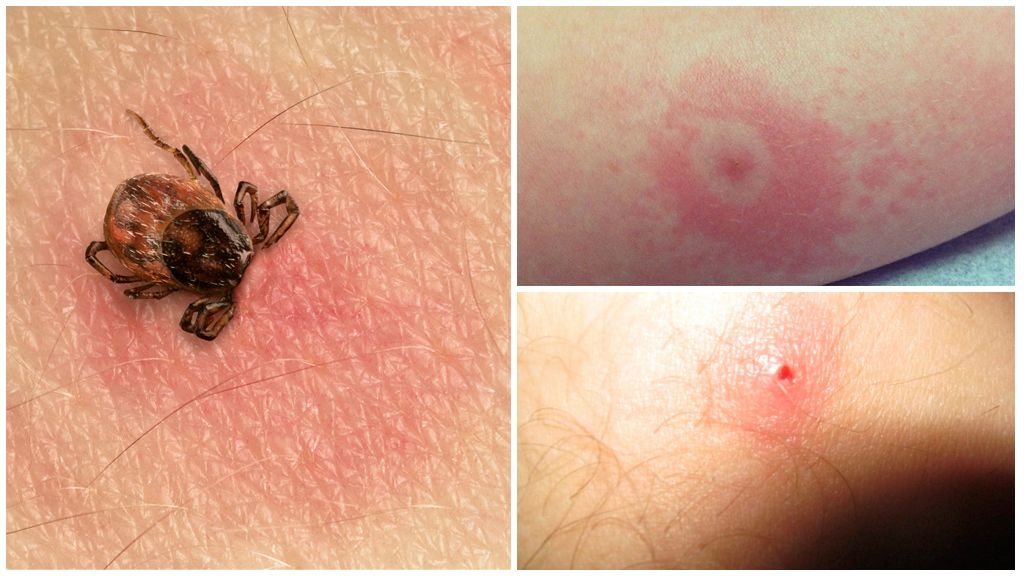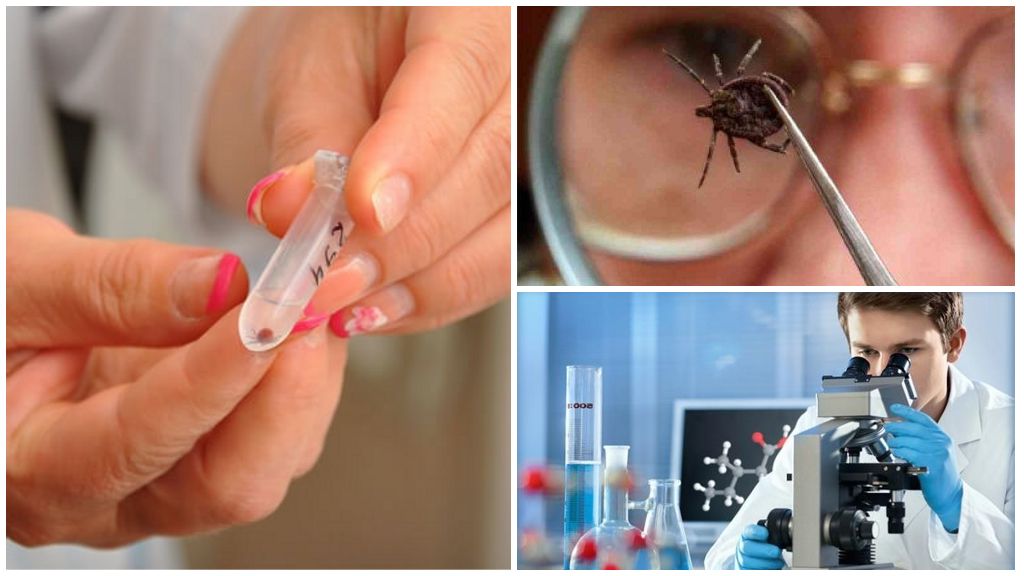- Tick Bite Disease
- Antibiotics after a tick bite
- Sumamed with a tick bite
- Tetracycline with a tick bite
- Doxycycline for the treatment of tick bites
Tick bite - the danger faced by many people, relaxing in the forest, park or in the country. Moreover, parasites can bite not only adults, but also children. The situation is exacerbated by the fact that bloodsuckers are disease vectorsthat can not only seriously affect human health, but also lead to death. Antibiotics for tick bites can prevent the development of complications and serious consequences.
What to do after a tick bite
If symptoms of a tick bite or the bloodsucker himself are detected, the first aid is provided to the victim, which consists in parasite extraction and treatment of the affected area. After that it is necessary to take the extracted animal to the clinic, as well as take tests after a biteaccording to the results of which, if necessary, the doctor will prescribe certain pharmaceutical preparations. In some cases, patients after a tick bite are prescribed antibiotics.
On a note!
Not everyone is a disease carrier mite. Most infections, thanks to a strong immune system, do not cause infectious lesions. The bite is not accompanied by pain, because of which the sucking pest can go unnoticed for a long time. Symptoms of pathology arise after some time and directly depend on the individual characteristics of the human body, as well as the number of sucked parasites.
Why prescribe antibiotics after a tick bite
However, ticks are often found that can be carriers or intermediate hosts of the following types of infections:
- tick-borne viral encephalitis;
- borreliosis;
- anaplasmosis;
- rickettsiosis;
- ehrlichiosis etc.
Especially dangerous is borreliosis - a disease that affects not only the skin and joints of a person, but also the cardiovascular and nervous systems. And if to protect against tick-borne encephalitis, you can go vaccination, then from other diseases caused by the parasite, including borreliosis, it will be powerless. Therefore, the sooner a person takes an antibiotic after a tick bite, the greater the chance of avoiding irreversible consequences that can lead to death.
Most often, signs of infection after an tick bite begin to appear after an hour from the moment the skin is parasitized. In the lesion focus there is swelling and redness with clear boundaries (erythema). Such signs are evidence of Lyme spirochetes infection. Moreover, erythema is migratory, in connection with which, it can manifest itself in other parts of the body.
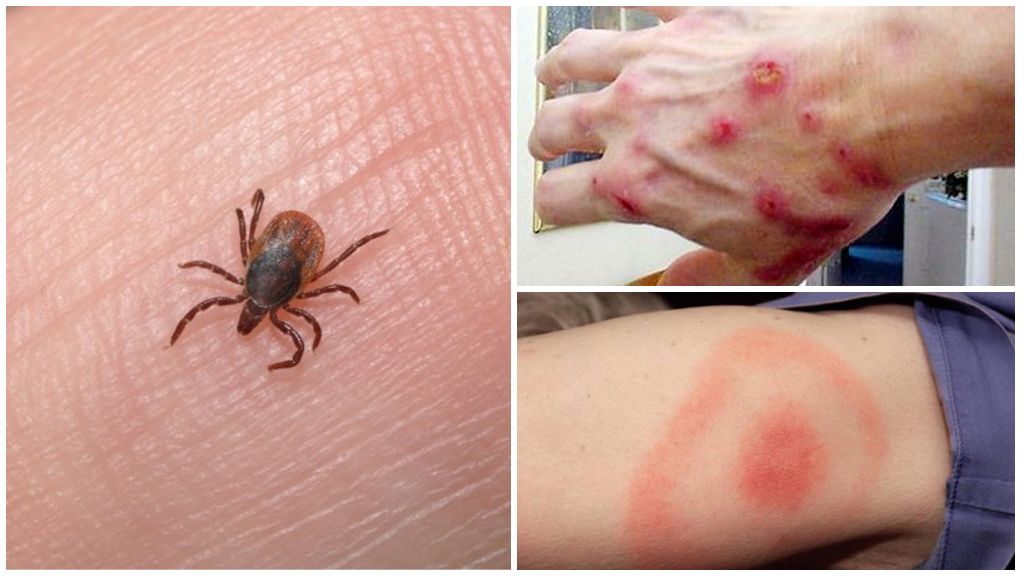
Important!
Taking antibacterial drugs is aimed at stopping the infection and the symptoms of an infectious disease. The dosage regimen, dosage and duration of the course of therapy with antibiotics after tick bites is prescribed only by a doctor and individually.Since therapy with a specific development of the disease can vary both in the use of drugs and in the length of time. Usually, medication is prescribed from 10 to 20 days after the onset of signs of the disease.
Self-medication can weaken the immune system, disrupt the liver and kidneys, causing a strong allergic reaction of the skin.
What antibiotics to take with a tick bite
Tick antibiotic can have various forms of release. At the first stage of treatment, the doctor usually prescribes oral preparations in capsule, tablet or liquid form, which are characterized by good absorption. However, if the gastrointestinal tract enters the acidic environment, such antibacterial agents can also be destroyed.
When confirming the presence of tick-borne infection, intramuscular and intravenous injections are prescribed. Antibiotics in this category can also be in the form of powders, from which injection solutions are prepared.
Antibiotics for prevention
An antibiotic for prevention helps prevent infectious complications. Below is a list of the most popular drugs.
Clarithromycin
It is an antimicrobial agent, the active substance in which is clarithromycin (250 or 500 mg in one tablet). As auxiliary substances, corn starch, lactose, talc, colloidal silicon dioxide are used.
- The drug is intended for the treatment of infections caused by various microorganisms sensitive to the drug. The composition is also prescribed for respiratory diseases, for the treatment of infected wounds, furunculosis and folliculitis.
- An antibiotic for a tick bite for adults and children over 12 years of age is prescribed in a dose of 250 mg, in the presence of severe infections, the dose is increased to 500 mg 2 times a day. The drug is taken regardless of food 2 times a day.
- The duration of treatment depends on the degree of the disease and varies within 1-2 weeks.
When using the drug, side effects are possible, which are manifested in the form of an allergic reaction, tachycardia, taste disturbances, nausea, vomiting, dizziness.
Important!
The use of an antibiotic is not recommended for children under 12 years of age, people with hypersensitivity to the components of the drug, as well as women during pregnancy. The cost of a blister is 10 tablets with a dosage of 250 mg within 130 rubles.
Azithromycin
An antimicrobial drug of the macrolide group, which has a wide spectrum of action. Used for the treatment of intracellular and bacterial infections of different localization, for the treatment of skin, respiratory and ENT infections, chlamydia and Lyme disease, as well as uncomplicated diseases of the genitourinary system.
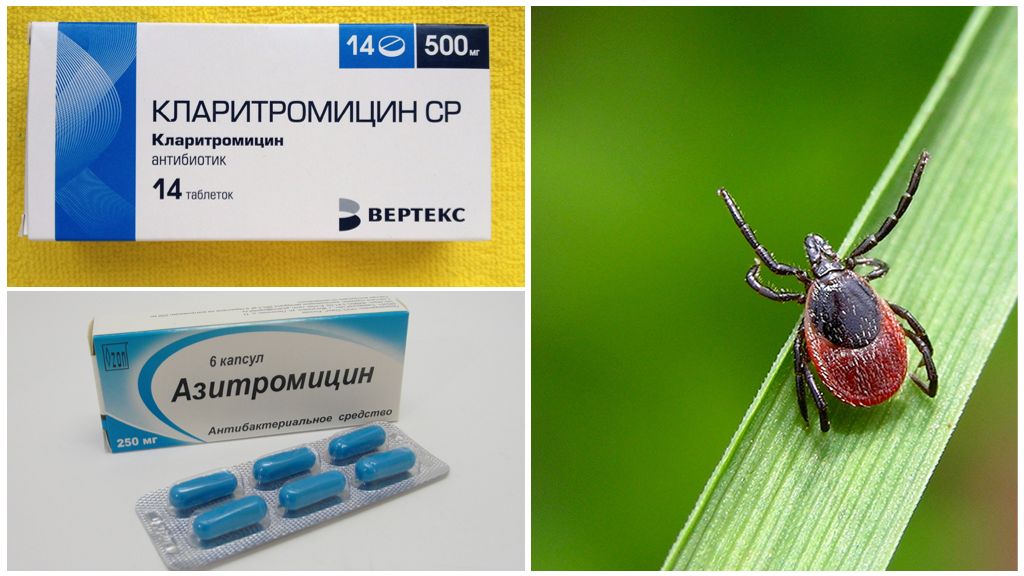
Azithromycin is taken one hour before meals or 2 hours after a meal. The daily dose and duration of treatment is prescribed by the attending physician, based on the individual characteristics of the body. Usually the daily dose does not exceed 250-500 mg.
- To treat an infection caused by a tick bite, the drug is taken 2 times on the 1st day of 500 mg, 250 mg from 2 to 5 days of therapy.
- For children over the age of five, the dose is prescribed taking into account the weight of the child. On the first day of therapy, 10 mg / kg of body weight is used, on the following days, 5 mg / kg of body weight.
Reception of an antibacterial agent is contraindicated for lactating and pregnant women, children under 5 years old, people with severe liver (kidney) pathology and intolerance to this group of antibiotics.
Important!
Taking an antibiotic can cause side effects in the form of frequent headaches, digestive disorders and loss of appetite, increased bilirubin and urea.
The cost of the drug varies depending on the dosage and the number of tablets (capsules) in the range of 65-110 rubles.
Feedback
Reception of Azithromycin was prescribed to the son after a tick bite before receiving the results of the tests.They drank the antibiotic, as the doctor prescribed, passed the test - everything is normal.
Olesya, Uman
Sumamed
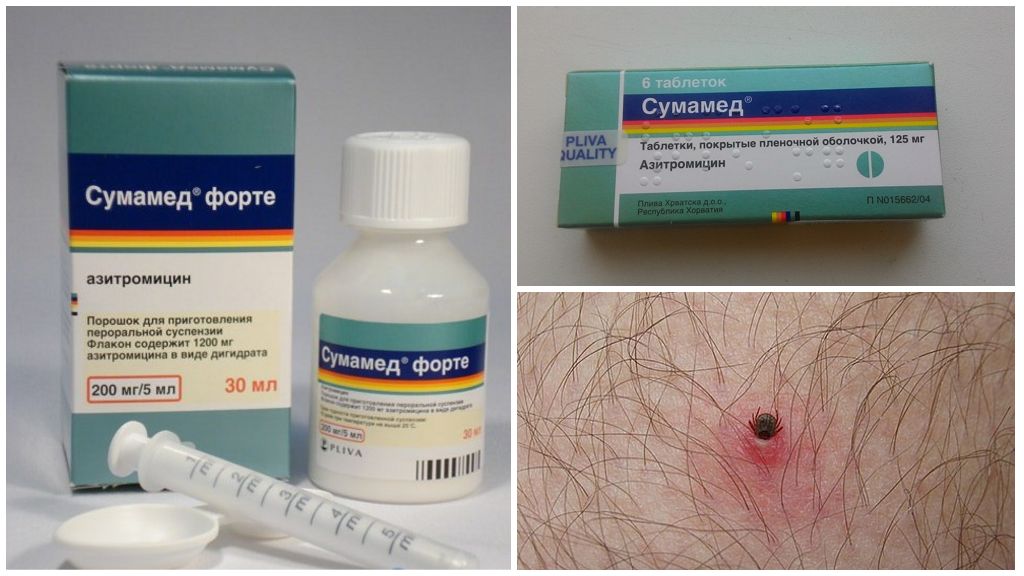
Another antibiotic with a wide spectrum of action from the macrolide group, based on azithromycin. Presented in the form of hard gelatin capsules containing a yellowish crystalline powder. The composition has bactericidal properties, due to which it is effective:
- with tick-borne infections (Lyme disease);
- infected dermatoses;
- in the treatment of ENT organs and inflammation of the genitourinary system.
Available in the form of tablets and powder for the preparation of suspensions.
The drug is recommended for use by adults and children weighing more than 45 kg. With a tick bite and the presence of migratory erythema, the total dose should not exceed 3 g. On the 1st day, take 4 capsules at a time (1 g), then 2 capsules at a time (500 mg every day). The duration of treatment is 5 days. Take Sumamed an hour before meals or 2 hours after eating.
Important!
When using an antibacterial agent, side effects are possible, which are expressed in the form of nausea, vomiting, flatulence, an allergic reaction and an increase in the activity of liver enzymes.
The composition is contraindicated in pregnancy, lactation, the presence of hypersensitivity to azithromycin, erythromycin and other macrolide components of the drug.
The cost of packaging 6 capsules of 250 mg in the range of 460 rubles.
Tetracycline
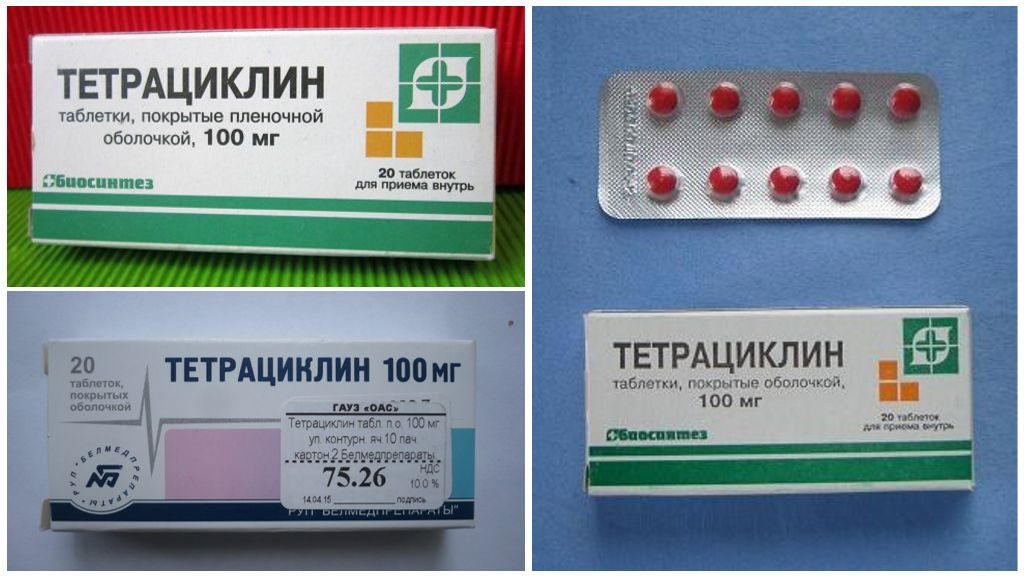
An antibiotic of the tetracycline group, which has a bacteriostatic effect. The drug based on tetracycline hydrochloride is effective against various gram-positive and gram-negative microorganisms, rickettsia, spirochetes, leptospira and other viruses. Tetracycline can be bought in the form of tablets, dragees, granules from which syrup is made, and suspensions intended for oral administration.
For better absorption, the medicine is taken 1 hour before or 2 hours after a meal with a sufficient amount of water. For adult patients and children from 12 years old, the daily dose of Tetracycline is 2 tablets (2 g). In the treatment of severe infections, the dose is increased to 500 mg. The course of treatment is up to 7 days. Drinking an antibiotic should be another 1-3 days after the disappearance of signs of the disease.
Important!
Contraindications are pregnancy and breastfeeding, the presence of fungal diseases and hypersensitivity to the components of an antibacterial agent. Do not take antibiotics for children under 12 years of age.
As adverse reactions, allergic reactions, dyspeptic symptoms, damage to the kidneys and liver, dysbiosis, pigmentation of the skin and changes in the mucous membranes are possible.
The price of 20 tablets of tetracycline (100 mg) is about 60 rubles.
Feedback
I decided to drink the antibiotic myself, after I discovered a tick bite. However, my tetracycline caused a severe digestive upset. Then for a long time I struggled with this problem. Therefore, it is better to consult a doctor what and how to take in such situations.
Catherine, Barnaul
For preventive purposes, with a tick bite, Augmentin is also prescribed, Iodantipyrine, Remantadine, Bicillin-5.
Antibiotics for treatment
If the result of laboratory tests of a parasite that inflicted a bite on a person was an identified infection, then in order to prevent its development, a course of antibiotic therapy is prescribed.
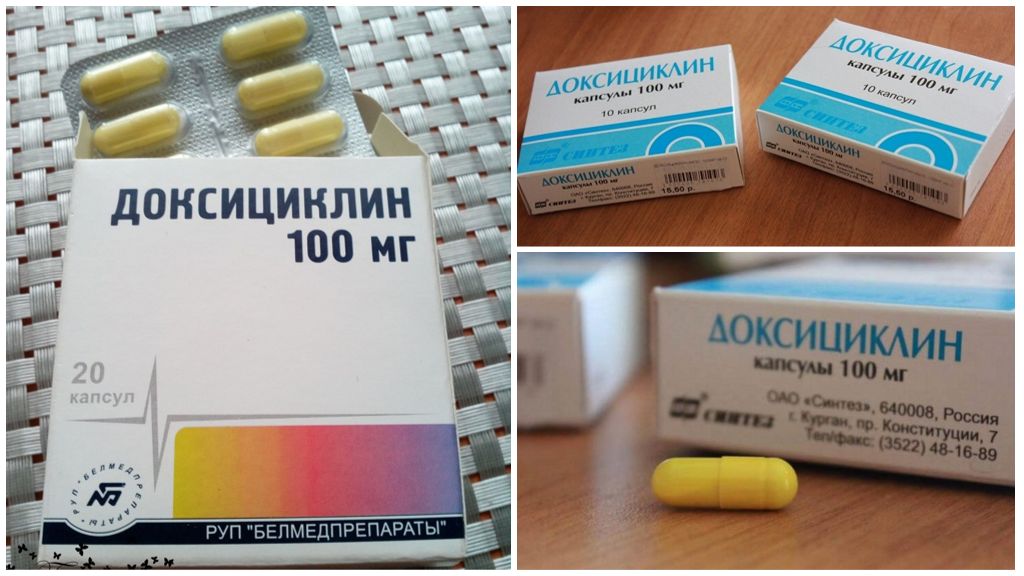
If the result laboratory tests of the parasitethat inflicted a bite on a person, an identified infection has become, then in order to prevent its development is assigned course of antibiotic therapy for borreliosis.
Doxycycline It is an antibiotic of the tetracycline series, which has a wide spectrum of action and inhibits the ability of microbes to reproduce.
- Effective against aerobic and anaerobic infections, as well as various fungi and viruses.It is prescribed for the treatment of infectious diseases, respiratory organs, skin infections and sexually transmitted diseases, diseases of the eyes and urinary tract.
- The medicine is available in the form of a powder, from which a solution for intravenous administration, and capsules for oral administration are prepared.
- The dose for adult patients, as well as the frequency of administration and the duration of treatment depends on the type of pathogen and the individual characteristics of the body, therefore, are determined solely by the doctor. Usually, on the 1st day of treatment, 200 mg are taken, subsequently 100 mg of an antibacterial agent. In acute infections, a daily dose of 200 mg is prescribed for the entire course of treatment.
- The children's dose is calculated taking into account the weight of the child: 4 mg per kg of weight - on the 1st day of treatment, 2-4 mg per kg of weight - on the following days. Capsules are taken once at the same time of the day or twice a day with a break of 12 hours, drinking plenty of water.
You can not take an antibiotic during breastfeeding and in the second half of pregnancy, in the presence of hypersensitivity to the components of the drug and severe liver failure, as well as children weighing up to 45 kg.
Important!
A side effect is manifested by nausea, abdominal pain, swelling and an allergic reaction. Prolonged use of the composition can cause dysbiosis, anemia, a change in tooth enamel and candidiasis.
Price Doxycycline capsules 100 mg 20 pcs. about 30 rubles.
Feedback
Earlier, Doxycycline drank during ARI, and his doctor prescribed it when I found a tick on my body. I don’t have any allergies or other side effects. However, everything is individual, it may not suit someone. Therefore, it is not in vain that they say that such a medicine should be prescribed by a doctor.
Valentina, Pskov
Similar antibacterial properties are also possessed by preparations of the following brands: Amoxicillin, Realdiron, Klaforan, Minocycline, Ceftriaxone, Emsef.
